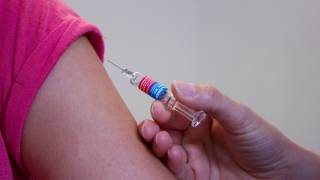Shoulder Injuries Now Included in Vaccine Compensation Program

Vaccines, like most medicines, can cause side effects in certain situations. In very rare cases, delivering a vaccine may cause health problems, such as a sore shoulder.
In these instances, the National Vaccine Injury Compensation Program (VICP) may provide financial compensation to individuals who file a petition and are found to have been injured by a VICP-covered vaccine.
The 21st Century Cures Act made several amendments to the National Childhood Vaccine Injury Act of 1986, which is the VICP authorizing legislation.
On July 29, 2015, the Secretary of Health and Human Services published in the Federal Register a Notice of proposing revisions to the Vaccine Injury Table.
This rule change is perhaps the single most important change in the vaccine court in favor of the injured and gives individuals an easier path to recovery.
On occasion, the Vaccine Injury Table will go through proposed rule changes through the Federal Register to add or subtract various vaccines or injuries to the Vaccine Injury Table.
The secretary based the revisions on the 2012 Institute of Medicine (IOM) report, ‘‘Adverse Effects of Vaccines: Evidence and Causality.’’
One of the purposes of the rule change – the other was to add Guillain-Barre Syndrome to the Vaccine Table - was to add Shoulder Injury Related to Vaccine Administration (SIRVA) injuries to the vaccine chart.
Quite simply, a SIRVA results when a person suffers a shoulder injury when the vaccine is administered.
In addition, anyone who suffers a SIRVA injury within 48 hours of receipt of any vaccine on the Vaccine Injury Table, will also be given the presumption of causation.
Second, the 2015 rule change effectively reopens the statute of limitations period for cases that were previously time-barred.
The provision that “an individual who may be eligible to file a petition based on the revised Table may file the petition for compensation not later than two years after the effective date of the revision if the alleged injury or death occurred not more than 8 years before the effective date of the revision.”
This effectively means that any case where the client developed a SIRVA cases within 48 hours of any table vaccination, that occurred after March 21, 2009, are timely if they are filed before March 21, 2019.
This exception does not apply to cases that were already filed and adjudicated on the merits.
“On behalf of attorneys that represent those injured from the administration of vaccines, we hope that this rule change will streamline the process for those injured to recover from the Vaccine Injury Compensation Fund,” said David J. Carney, an attorney at Anapol Weiss.
Since the Vaccine Program exists, it is critical for administrators of vaccines, such as primary care physicians and pharmacies, to understand that these shoulder injuries can and do occur and that the administrators have an obligation to educate the injured about the Vaccine Injury Compensation Program for monetary recourse,” said Carney.
Any individual, of any age, who received a covered vaccine and believes he or she was injured as a result, can file a petition.
Parents, legal guardians, and legal representatives can file on behalf of children, disabled adults, and individuals who are deceased.
The Vaccine Injury Compensation Program filing process is as follows:
- An individual files a petition with the U.S. Court of Federal Claims.
- The U.S. Department of Health and Human Services medical staff reviews the petition, determines if it meets the medical criteria for compensation and makes a preliminary recommendation.
- The U.S. Department of Justice develops a report that includes the medical recommendation and legal analysis and submits it to the Court.
- The report is presented to a court-appointed special master, who decides whether the petitioner should be compensated, often after holding a hearing in which both parties can present evidence. If compensation is awarded, the special master determines the amount and type of compensation.
- The Court orders the U.S. Department of Health and Human Services to award compensation. Even if the petition is dismissed, if certain requirements are met, the Court may order the Department to pay attorneys' fees and costs.
The special master's decision may be appealed and petitioners who reject the decision of the court (or withdraw their petitions within certain timelines) may file a claim in civil court against the vaccine company and/or the healthcare provider who administered the vaccine.
The statute of limitations in vaccine-injury cases is not state specific. Since the jurisdiction of these cases is the U.S. Court of Federal Claims in Washington, D.C., a global statute of limitations of three years from the first manifestation of symptoms governs all NVICP cases.
If the vaccine injury is a death, then the statute of limitations is two years from the date of death or four years from the first manifestation of symptoms that resulted in the death.
This article included excerpts of an article written by David J. Carney, an attorney at Anapol Weiss. Carney represents individuals who have suffered adverse events from vaccines, as well as those who have catastrophic personal injuries from hazardous chemical, toxic and environmental exposures, benzene exposures, medical malpractice, motor vehicle accidents and defective products.
Carney can be reached at 215-735-3770 or via email at dcarney@anapolweiss.com
Our Trust Standards: Medical Advisory Committee
























